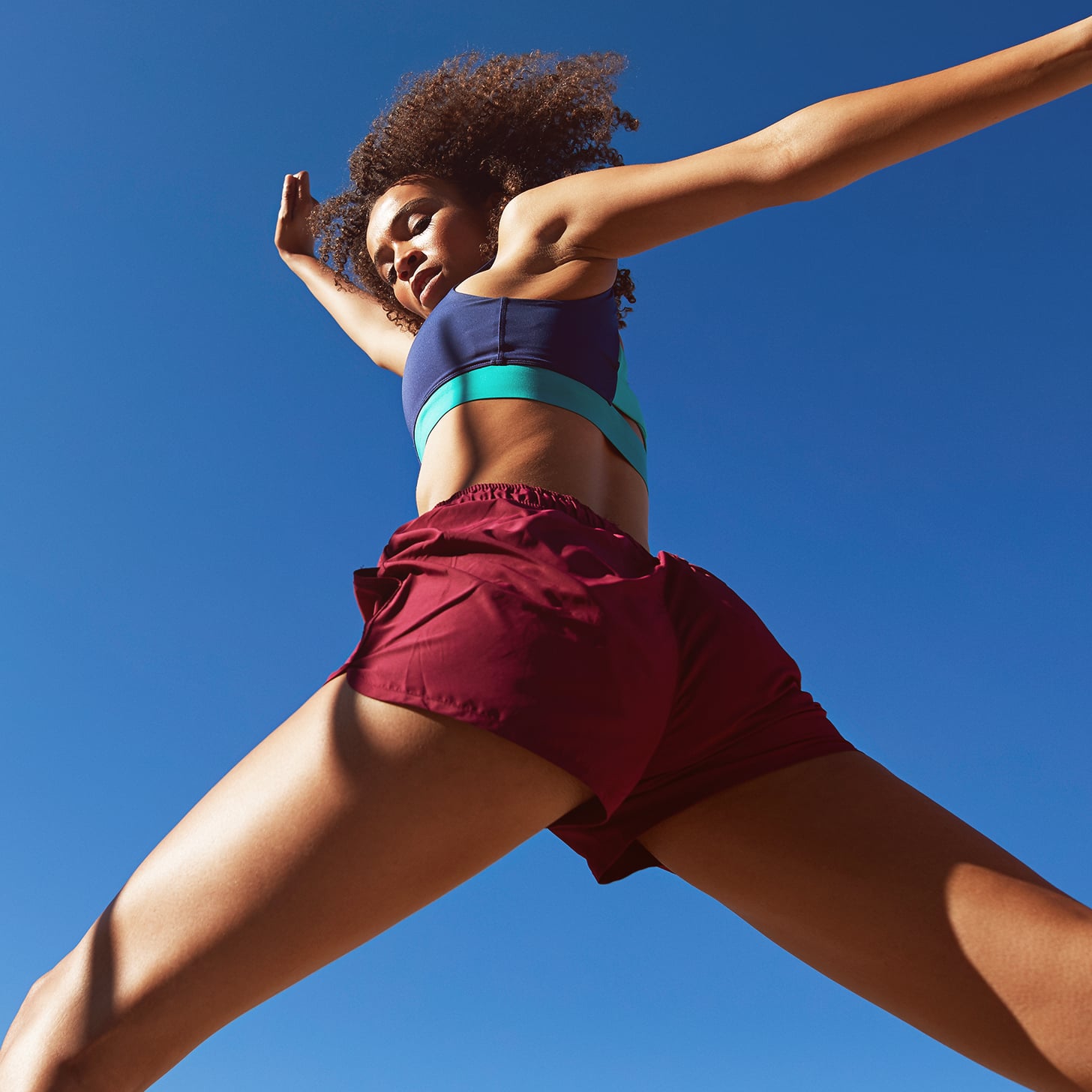
Sore muscles, sounder sleep, boosted strength, better mood — these are just a few of the changes that can happen when you start exercising more often or more vigorously. But those aren’t the only potential physiological effects of increasing the frequency and/or intensity of your workout routine: Doing so can also mess with your menstrual cycle, causing irregular or missed periods (oligomenorrhea) or halting menstruation entirely (amenorrhea).
Before you start pointing fingers at your workouts alone, know that “exercise is only part of the picture,” says Christine Sterling, MD, FACOG, board-certified ob-gyn, founder of Sterling Parents and Oura Medical Advisory Board member. Also at play, and potentially to blame for shifts in your cycle? Diet and nutrition and certain medical conditions, to name a few.
Keep reading to learn why and how excessive exercise can affect your period — plus, what to do (i.e. when to see a doctor) if you suspect your workouts are making your cycle wonky.
Why Exercise Can Mess With Your Period
ICYDK, hormones play a pretty big role in regulating your menstrual cycle. They ebb and flow throughout the four phases, and are responsible for telling your ovaries to form a mature egg, to release it into your uterus (ovulation), and then — if it isn’t fertilized, and you don’t become pregnant — for your uterine lining to shed, causing menstruation (aka your period).
But none of this will happen if a little birdie says your body can’t handle the undertaking. “There is an area of the brain called the hypothalamus that receives information from your body and decides whether you can ‘afford’ to ovulate and potentially get pregnant,” Dr. Sterling says. “Think of this area of the brain as an accountant who is telling you whether or not you can afford to ovulate.”
What could lead your brain to think you can’t “afford” to go through this, in Dr. Sterling’s words, “energy-intensive endeavor?” Working out too much — in addition to other factors, such as whether you’re getting enough calories and nutrients to support your activity.
“In these states of excessive exercise, the body is under so much physiologic demand and stress that the brain suppresses the release of these hormones that are essential to the function of the ovaries as well as the menstrual cycle,” says Katerina Hoyt, MD, instructor of obstetrics and gynecology at Northwestern Feinberg School of Medicine.
Essentially, your brain decides that given the heightened physical (and potentially mental) strain of all this working out, your body is not equipped to support “the metabolic and nutritional needs that a pregnancy would demand,” Dr. Hoyt explains. (Remember: The goal of the menstrual cycle is reproduction.) Instead, your noggin instructs your body to focus on truly essential functions (think: heart, lungs, brain).
So, How Much Exercise Is Enough to Cause Missed Periods?
The answer: It really varies from person to person.
“However, I think a large consideration is nutritional status,” Dr. Hoyt says. If you’re consuming an appropriate amount of food to support your physical activity and getting adequate sleep to recover physically from exercise, “there should likely not be any changes to the menstrual cycle,” she says.
How do you know if you’re eating enough? You can rely on a smartwatch or fitness tracker to help you estimate how much energy you’re burning and how much you need to eat, but it can also be as simple as eating when you’re hungry. “In general, I think that appetite is an important factor in all of this,” Dr. Hoyt says. “I would encourage [people] to consume a healthy, well-balanced diet, and amounts of food should be driven by appetite. The old saying ‘listen to your body’ applies here.” If you’re concerned you might not be eating enough or getting the right nutrients, it’s a good idea to work with a nutrition professional, such as a registered dietitian.
The type of training you’re doing can play a role, too. For example, endurance athletes such as marathon runners or triathletes are more likely to experience oligomenorrhea or to skip periods, Dr. Hoyt says. This is likely because that type of exercise is a greater stress on the body. “You’re pushing your body to the max, and then you keep going, as opposed to a 30-minute workout where you get your heart rate up and then your body is able to regenerate and repair,” Dr. Hoyt says. In addition to long-distance running, other activities or sports that require vigorous training, such as ballet dancing, are also more likely to interrupt menstrual cycles, according to the Mayo Clinic.
What’s more, certain medical conditions can also increase your chances of missing or losing your period when in tandem with heavy exercise. “Anything that can cause missed periods by itself in tandem with exercise could predispose you even more to missed periods,” Dr. Sterling explains, pointing to autoimmune conditions like type 1 diabetes or celiac disease.
When Should You See a Doctor?
“If you skip more than three periods in a 12-month period you should talk to your doctor,” Dr. Sterling says, adding that these three do not have to be consecutive. If you’re sexually active, it’s also a good idea to take a pregnancy test when experiencing missed periods to determine whether that might be the cause. In general, though, it’s important to remember that many other things can cause you to skip your period, including (but not limited to!) routine changes, stress, and travel.
Here’s the thinking: “Skipping one or two periods in a year is pretty normal for a human being, so we’re not going to go chasing that down as abnormal. Skipping three, that’s not normal. That means that there’s a higher likelihood that this person has something going on,” Dr. Sterling explains.
Image Source: Getty / Klaus Vedfelt
